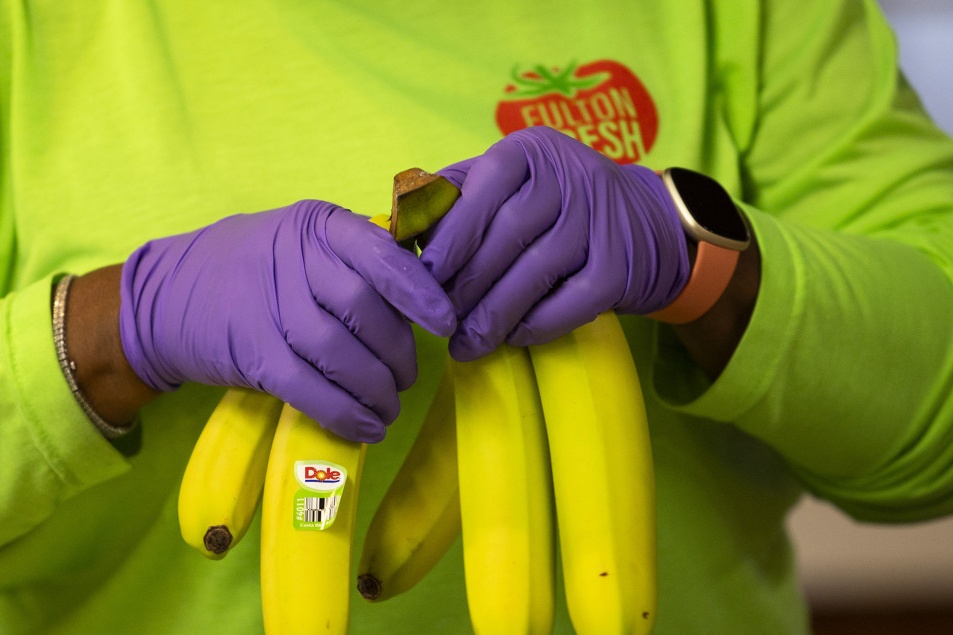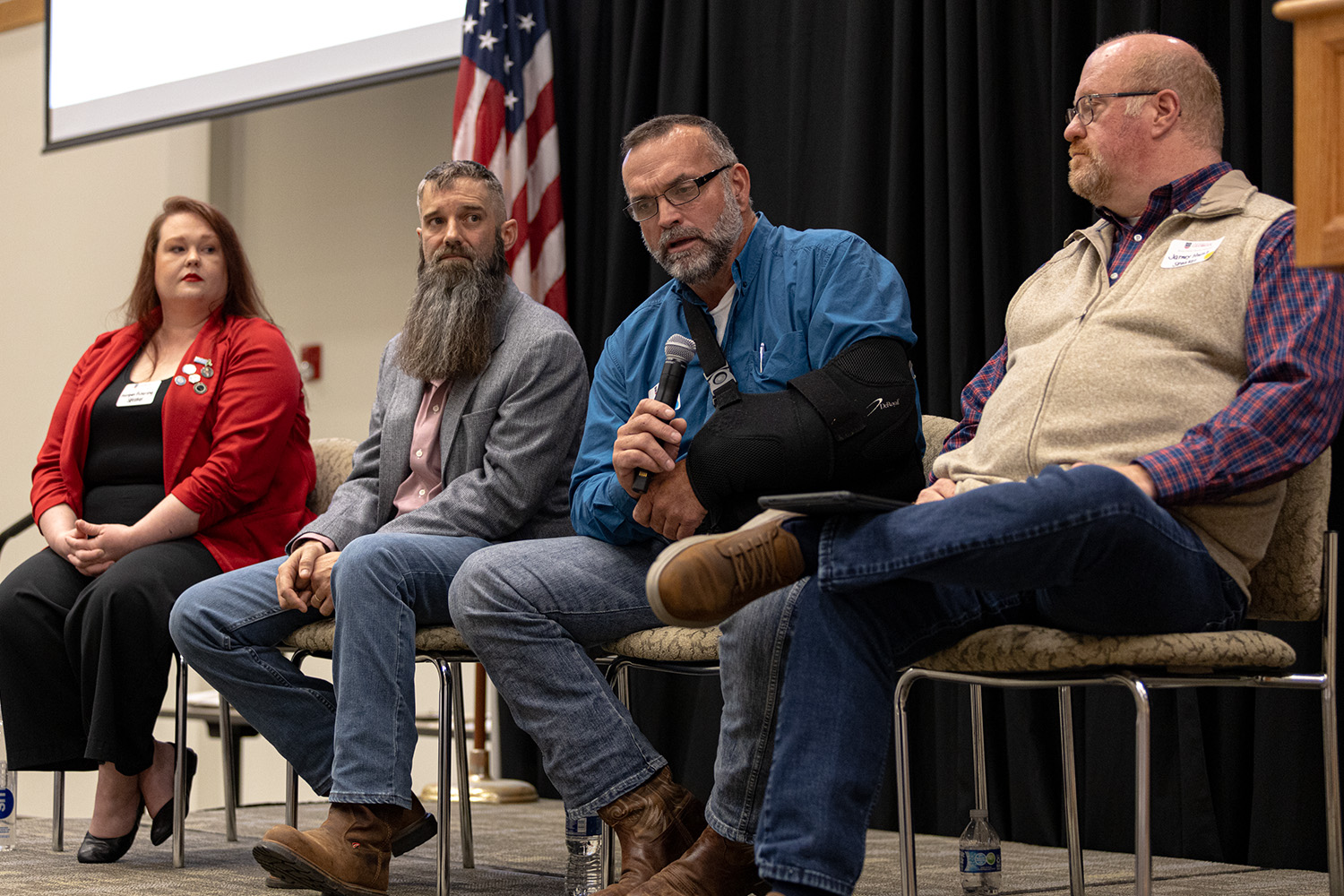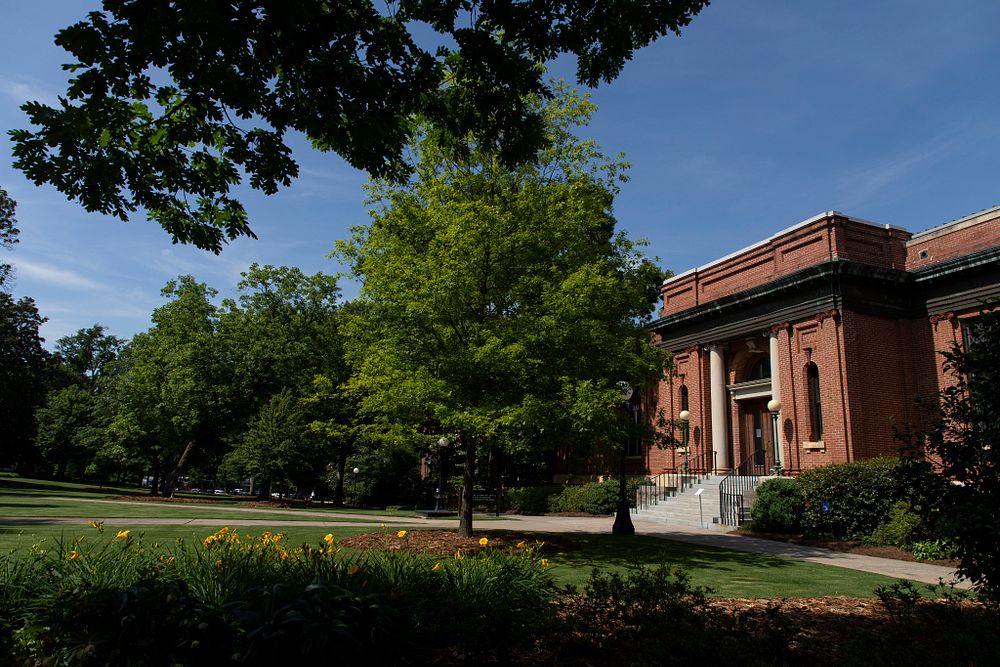Dumfries, Scotland, is about 4,000 miles away from the University of Georgia’s Athens Campus, but the population there faces the same problems as many Georgia towns, including food insecurity and health concerns connected to nutrition.
As Georgians, we hear about these problems often, but it’s sometimes hard to put them into perspective. Over spring break last month, a group of 10 College of Agricultural and Environmental Sciences students traveled to Dumfries as part of the college’s “Scotland: Food Insecurity Service-Learning Project,” to lend a hand and to put the problems facing their own communities into perspective.
This trip was the inaugural service-learning trip to Scotland for the CAES Department of Agricultural Leadership, Education, and Communication (ALEC). The students, who came some from several CAES departments, worked with the teachers, students and administrators at Troqueer Primary School in Dumfries to expand the school’s garden and worked with a local food bank, the First Base Agency, to increase their marketing efforts.
Dennis Duncan, professor of leadership education; Nick Fuhrman, associate professor of environmental education and program evaluation; and Eric Rubenstein, assistant professor of agricultural education, all in ALEC, worked with faculty at the University of Glasgow to plan service-learning activities in the country.
Students not only learned from the differences in the education system and social welfare systems but also from being immersed in a different culture. From the sizes of the portions at meals, to social expectations and cell phone usage, students learned that the world is different outside of Georgia.
Troqueer Primary School
Students spent most of their time at Troqueer Primary School working with students and teachers to build up their school garden.
“We worked with them to expand their resources to teach the students about food production on the school grounds,” Duncan said. “They have one or two raised beds and we worked them to expand that.”
While renovating an entire garden in under a week would be quite the undertaking in any setting, working at the school held extra challenges and rewards, according to the students.
Troqueer uses a pupil voice group model of governance, which means all 300 of the school’s students have a great say in discipline policies, school maintenance and extracurricular activities. The students meet regularly to discuss everything from litter pickup duties to garden designs.
CAES students had to meet with different pupil voice groups at the school to win approval for their garden designs and then work with the students to improve the garden. In addition to growing the school’s network of raised beds, the students, working together, added a vertical garden and installed a sensory garden as a gateway to the garden area.
All of the CAES students on the trip reported that the process of working with the pupil voice groups at Troqueer was nothing short of inspirational.
“Throughout the semester we have been told that we would be blown away by the environment of Troqueer, and our time there has certainly exceeded our expectations,” said Anna Johnson, a student studying water and soil resources. “I believe that the students’ involvement will keep them motivated as the school garden project continues, even after the semester ends, which would allow our work to have a lasting, sustainable impact … Before I began this journey in January, I didn’t put much thought into education policy and methods, but my time at Troqueer has truly opened my eyes to the incredible potential many public schools in the U.S. have. Even though I have no plans to become a teacher, I believe that what I’ve learned from the students, staff and programs of Troqueer will impact the way I interact with others as I begin my career.”
In the final weeks of the course the UGA students and faculty are continuing to work with Troqueer teachers and administrators via Skype and the internet to determine which resources teachers need to effectively use the structures we built to better educate their students on all facets of food production, harvesting, and preparation.
First Base Agency
While most of the students worked at Troqueer, a team of two students spent the majority of their time interviewing clients at the First Base Agency, a small food pantry that serves Dumfries.
They recorded 12 interviews and met with Director Mark Frankland to develop the groundwork for what will become a YouTube-based video marketing campaign for the food pantry.
“You will never truly know what kind of impact you have on someone’s life,” said Chasity Thompkins, an agricultural leadership graduate student planning to work in Cooperative Extension. “A group of college kids came together and accomplished something so impactful and wonderful because they wanted to. I could not be more proud to work alongside my peers and I would do it over again in a heartbeat.”
For the rest of the semester, students in this service-learning class will be working at the Campus Kitchen at UGA to study the way food insecurity affects people in the United States. In addition to volunteering, they will be developing a curriculum for Campus Kitchen clients to help them preserve the fresh vegetables they receive from Campus Kitchen.
Learn more about the Scotland study abroad program here.






